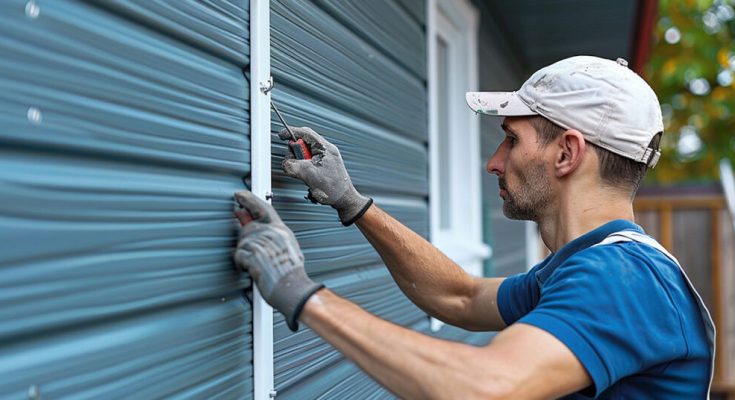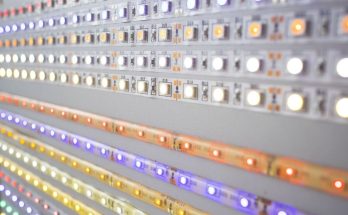Your garage door is one of the hardest-working systems in your home. It opens and closes hundreds of times per year, and when something goes wrong, it can cause major inconvenience—or even safety risks. Many homeowners ignore small issues until they become expensive problems. Recognizing the early warning signs can help you call professionals for Door Doctor garage door repair before minor wear turns into a complete failure.
Here are the most common signs that your garage door needs immediate professional attention.
1. Unusual Noises During Operation
Grinding, squealing, or banging noises are often the first clues that something is wrong. A healthy garage door operates quietly, aside from a soft hum from the motor or rollers.
What it might mean:
- Worn-out rollers or hinges.
- Dry or unlubricated metal components.
- Misaligned tracks or loose hardware.
If noise persists after lubrication, it’s time to schedule a professional inspection—continued operation can cause further mechanical strain.
2. Slow or Uneven Movement
If your garage door opens or closes slower than usual, or moves unevenly, it signals motor or spring issues. Delayed response time can also indicate a problem with the opener or power source.
Possible causes:
- Weak or broken springs.
- Failing opener motor.
- Friction caused by misaligned tracks.
Ignoring this can lead to complete motor burnout or cable failure. A technician can diagnose and rebalance the system safely.
3. Door Doesn’t Open or Close Fully
When your door stops halfway or reverses automatically, it’s often a sensor or limit switch issue. It can also mean the door is out of alignment, causing the opener to detect resistance.
Common culprits:
- Misaligned photo-eye sensors.
- Dirty or obstructed tracks.
- Faulty travel limits on the opener.
Never force a half-open door to close manually—doing so can break cables or strain the opener system.
4. Sagging or Misaligned Sections
If the door appears uneven when closed or leaves visible gaps at the bottom, the panels or springs might be misaligned. A sagging door not only looks bad but also weakens the entire structure.
Professional repair prevents:
- Warped panels.
- Uneven pressure on springs.
- Further misalignment that leads to track damage.
Technicians can rebalance the door and reinforce weak points before they worsen.
5. Jerky or Shaky Movement
A smooth lift and close cycle indicate proper tension and alignment. Shaking, jerking, or bouncing motion means the rollers or cables are wearing out.
Likely causes:
- Bent tracks.
- Loose mounting brackets.
- Damaged rollers or bearings.
Without immediate attention, this can strain the opener motor and lead to a complete mechanical breakdown.
6. Garage Door Feels Heavy or Unbalanced
If your door feels heavier than usual or won’t stay open halfway, the counterbalance system is likely failing. Springs lose tension over time, making the motor work harder.
Professional adjustment ensures:
- Correct weight distribution.
- Proper spring calibration.
- Prevention of snapped cables or broken torsion springs.
This is never a DIY task—springs are under extreme tension and should only be adjusted by certified technicians.
7. The Door Opens or Closes on Its Own
If your garage door operates randomly, it’s a clear sign of an electrical or safety system fault. This could indicate:
- A short circuit in the control board.
- Faulty remote transmitter signals.
- Wiring or grounding problems.
Uncontrolled operation is a serious safety risk. Disconnect power and contact professionals immediately for a full diagnostic check.
8. Visible Wear on Springs or Cables
Over time, torsion springs and lift cables weaken from constant use. Fraying, rust, or gaps in the spring coils are warning signs of imminent failure.
Warning: A snapped spring or cable can cause severe injury or property damage. Replace them as soon as signs of wear appear—don’t wait for them to break.
9. Door Won’t Stay Closed or Open
If the door slides down after closing or won’t hold its open position, it indicates an imbalance in the system. This can stem from spring failure or misadjusted opener force settings.
Leaving this unchecked compromises security and can cause the door to slam shut unexpectedly.
10. Rising Energy Bills or Drafts
Garage doors that don’t seal properly allow heat or cool air to escape. If you notice temperature changes or energy cost spikes, the insulation or weather stripping may be failing.
Professional repair includes:
- Replacing damaged seals.
- Adjusting door alignment for airtight closure.
- Inspecting insulation efficiency.
This not only improves comfort but also reduces monthly energy consumption.
Final Thoughts
Your garage door’s performance affects both security and convenience. Small issues like noise or uneven movement often hide bigger mechanical problems beneath the surface.


